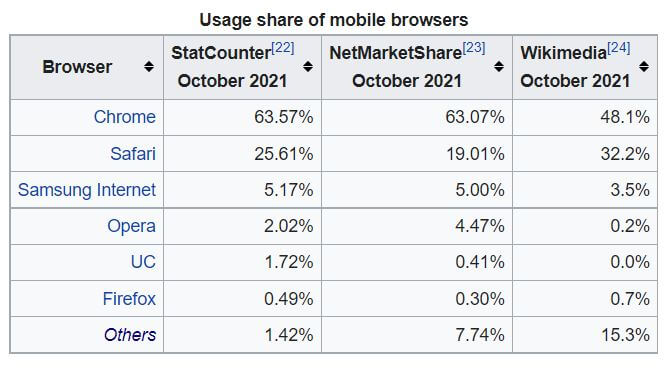 Opera Internet Browser is BETA testing a Crypto Browser to integrate Web3 applications
Opera Internet Browser is BETA testing a Crypto Browser to integrate Web3 applications Opera Internet Browser is BETA testing a Crypto Browser to integrate Web3 applications
Internet browsers are assessing the development Web3 integrations and features to cater for blockchain technology.

Cover art/illustration via CryptoSlate. Image includes combined content which may include AI-generated content.
The world of Web3 is heating up and some of the major internet players are getting involved in the action. Opera, a Norwegian-based internet browsing company, has announced that it is BETA testing a new crypto-focused browser that will be available immediately for Windows PC, Mac and mobile phones. This has the potential to be a game-changing scenario in the crypto search scene as it delivers a new web experience architected around Web3 technology.
With the aim of accelerating the adoption of the next-generation web, Opera have integrated a cryptocurrency wallet and web3 support into their web browser. As more interest in a decentralized future for the web grows, it is becoming important for internet providers like browsers to factor blockchain technologies into product development and feature applications.
If a web browser is the main portal used for accessing the web and the content served by that web browser is web3 friendly then it will be interesting to see what other browsers start to tap into this lucrative market. Google Chrome has 63% of the global market share on mobile devices so it is safe to say that they are leading the way in terms of browser solutions. This is closely followed by Safari with 25.61%. Opera is still at the table in the top browsers worldwide and although 2.02% may not look large, with a market of billions of users to tap into there is a big pot to go around. The more niche browsers with a loyal and growing following may be an interesting market to explore Web3 community opportunities and with over 650k Twitter followers they certainly have a great base to research the market.

In 1995, Netscape and Microsoft’s Internet Explorer went face to face in a browser war for attracting new users. Internet Explorer won this battle but not for long as Apple released Safari in 2003 and Google launched the famous Chrome in 2008. These two went on to take the majority of the market and still remain the most dominant browsers of today.
Google’s determined focus on innovative features and ever-expanding user retention has made it almost impossible to compete with. However, blockchain technology has opened up a whole new range of users with needs that are not currently met through the existing mainstream browsers.
“With the Crypto Browser Project, we have set out to change this, and starting today, we are inviting the blockchain community to join this mission. If we are to take Web3 beyond great ideas, we need to craft products that embrace both crypto enthusiasts who understand the space and those who are only starting and want to explore it. Our belief is that the world of blockchain needs a fully dedicated browsing experience.” Opera Blog
The Opera Crypto Browser Project is designed to work with a variety of decentralized apps, or dApps. They are pursuing a multi-chain strategy and partnering with Polygon, Solana, Nervos, Celo, Unstoppable Domains, Handshake and ENS, and working on others. The browser will also provide a Crypto Corner, giving access to the latest blockchain news, airdrops and events. Impressively, the team at Opera also offers a new native non-custodial wallet where you can access crypto or sign into dApps directly from the browser, without installing any extensions.
As users continue to adopt blockchain solutions and look for alternative ways to secure their data, they will seek new user experiences that facilitate decentralized platforms and put a strong focus on information privacy as well as data security thanks to the strong encryption that blockchains provide. Web3 users will want to have easy access to the world of DeFi, NFTs and the Metaverses that will be home to digital infrastructure, brands and assets in the future.




 Arkham Intelligence
Arkham Intelligence 

 Farside Investors
Farside Investors 
 CryptoQuant
CryptoQuant 
 CoinGlass
CoinGlass 

























































































